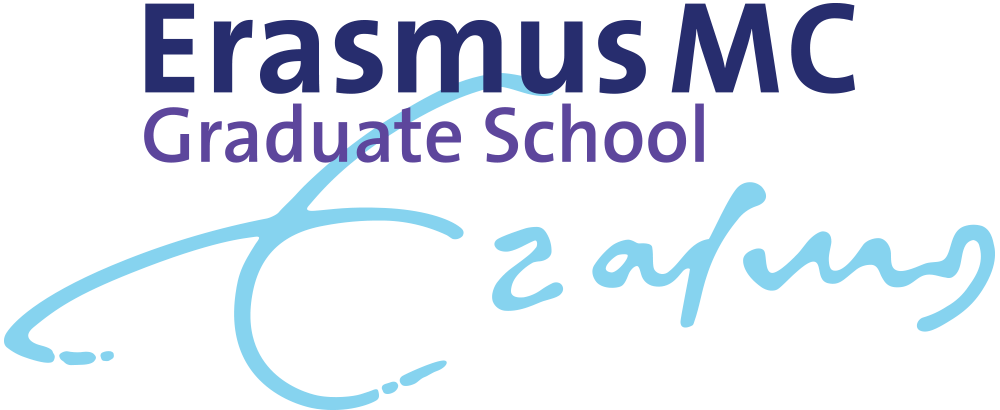Research Themes
- Intensive Care
- Oral and Maxillofacial Surgery
- Plastic, Reconstructive and Handsurgery
- Biostatistics
- Medical Psychology and Psychotherapy (MPP)
- Health Decision Sciences
- Public Health
- Genetic Epidemiology
- Clinical Epidemiology
- Medical Informatics
- Musculoskeletal Science
- Surgical Research
- Gastroenterology & Hepatology
- Transplantation Medicine
- Urology
- Periconception and Prenatal Medicine, Obstetrics and Reproduction
- Pediatric Research
- Gynaecology and Gynaecologic Oncology
- Medical Oncology
- Haemato-Oncology
- Cardiovascular research
- Endocrinology, Neuro-Endocrine Immunology, and Clinical and Medical Immunology
- Imaging Studies
Rehabilitation: optimizing recovery and functioning of people with chronic conditions
Prof dr. Gerard Ribbers, MD, PhD
Rehabilitation medicine aims to enhance and restore functional ability after injury to the brain, peripheral nervous system and locomotor system. The department’s mission is to perform excellent research on rehabilitation after acquired brain injury, spinal cord injury and in pediatric patients with developmental disorders. The focus is on improving (motor) performance with registry based data-driven precision rehabilitation, physical behaviour monitoring, innovative rehabilitation technology and health-related physical fitness and lifestyle interventions. The department collaborates in research with many departments such as neuroscience (motor learning in stroke), neurology (aphasia, long term outcome of subarachnoid haemorrhage and stroke), neurosurgery and neuro-oncology (cognition in patients with low grade glioma, TBI registry), plastic surgery (predicting and improving outcome after hand surgery), cardiology (fitness after myocardial infarction), and biostatistics (prediction modelling). This network is strengthened by involvement in the ACEs Brain Motion (motor learning), Health Care Quality (Value Based Health Care and data science) and Stroke. The presence of the Technical University of Delft offers a unique opportunity to collaborate in technical innovations in rehabilitation with Rijndam Rehabilitation as clinical test center. Further, the department’s expertise is relevant for clinical partners such as Xpert Clinic & Handtherapy Netherlands (modelling recovery in a PROMs database of over 60.000 subjects) and Capri Cardiac Rehabilitation (improving physical fitness).
For an overview of our scientific work, please see our Bi-Annual Scientific Report over the years 2019-2020: https://www.erasmusmc.review/.
 Theme 1: Recovery after acquired brain injury
Theme 1: Recovery after acquired brain injury
Prof. dr. G. Ribbers, MD, PhD; Dr. M.H. Heijenbrok-Kal, PhD; Dr. E Grauwmeijer, MD, PhD
Acquired brain injury, especially stroke and traumatic brain injury, occur frequently and the consequences of these chronic disorders are found to be the most expensive for our society. Care of patients with acquired brain injury involves care from many different professionals (neurologists, rehabilitation physicians, geriatric physicians, physical and occupational therapists, psychologists, nurses, home care, etc.). This multidisciplinary research focuses on rehabilitation therapies and long-term outcomes of patients with acquired brain injury, f.e. physical functioning, cognitive functioning, depression, fatigue, problems in return-to-work, social participation, and quality of life. Insight in the long-term outcomes will help to develop, assess, and implement new rehabilitation therapies for patients with acquired brain injury aimed at optimal social participation and quality of life.
 Theme 2: Health-related physical fitness and lifestyle
Theme 2: Health-related physical fitness and lifestyle
Dr. H.J.G. van den Berg-Emons, PhD
People with chronic conditions have a high risk of developing an inactive lifestyle, with detrimental effects on their physical fitness and health. Given the improved life expectancy, focus on health-related physical fitness and lifestyle in people with a chronic condition has become more and more important to maintain function and health, but knowledge is often scarce.
Aim of the research theme is to optimize treatment with regard to health-related physical fitness and lifestyle in people with chronic conditions. To achieve ‘Exercise is Medicine’ in rehabilitation care, we strongly work together with rehabilitation professionals from the design of studies onwards, and we focus on sustainable and personalized lifestyle interventions to achieve long-lasting effects. We perform research in several patient groups, both ambulatory and wheelchair-dependent; these groups comprise patients with spinal cord injury, subarachnoid hemorrhage, cardiovascular disease, and since recently patients with COVID-19. We focus on several constructs of health-related physical fitness -such as aerobic capacity, muscle strength, body composition- and on physical behaviour, nutrition, and sleep. To understand underlying mechanisms, we include parameters such as exercise self-efficacy, motivation, coping style, and social support.
 Theme 3: Physical behaviour monitoring in chronic conditions
Theme 3: Physical behaviour monitoring in chronic conditions
Dr. J.B.J. Bussmann, PhD
The central area of expertise of the research theme is the development, validation and application of wearable technology for measuring and optimising the physical behaviour of people with chronic conditions. Physical behaviour is defined as the postures, movements and physical activities that people perform in their daily lives and in the living situation of that person at that moment. Physical behaviour includes people’s freely chosen natural behaviour, with structured exercise activities aimed at improving functions and skills as a specific component. Literature and own research have shown that exercise behaviour is a unique domain of functioning.
The research theme can be summarised in a number of main characteristics. The research focuses on: 1) wearable technology; 2) development, validation and (exploration of) clinical application; 3) physical behaviour; and 4) chronic diseases. The integration of these core properties is the central area of expertise. As a research theme, we have knowledge of the four core characteristics, but we also form a bridge between technology, technological developments and technicians on the one hand, and doctors, practitioners and clinical questions on the other.
The aim of the research theme is to improve the rehabilitation treatment of people with a chronic condition who have a (possibly) suboptimal physical behaviour, by developing, validating and applying wearable technology. In improving rehabilitation treatment, we distinguish five ways of application:
- using outcomes measured with wearables in the “at home” treatment of patients,
- better mapping of patient status and recovery by monitoring physical behavior
- the better evaluation of the effects on physical behaviour of interventions
- the development of new systems and outcome measures, and
- developing more fundamental knowledge about the determinants of physical behaviour and the effects of interventions on exercise behaviour.
 Theme 4: Data-driven precision rehabilitation
Theme 4: Data-driven precision rehabilitation
Prof. dr. R. Selles, PhD
Clinical data are often collected in an unstructured way in electronic patients files and as such they are difficult to access for the purpose of quantitative research. Moreover, patient-reported outcome measures are rarely systematically collected and, if so, traditionally collected on paper. In a collaboration with the Departments of Plastic Surgery, Public Health and Rehabilitation Medicine of the Erasmus MC and with the Xpert Clinic, GemsTracker was developed as an open source webbased application to assign measurement tracks to patients. We have the ambition to be leading in data-driven precision medicine for stroke, traumatic brain injury, spinal cord injury, and upper extremity disorders based on the unified vision on data collection and data science.
Comparative effectiveness research with observational data using techniques such as propensity score matching can be used to evaluate the effect of variability while controlling for case-mix. This approach can speed up the cycle of medical innovation and reduce research costs. Routine outcome data of large patient groups collected in a daily clinical setting is suited for clinical prediction modeling in studying determinants of diseases, disease progression and treatment outcomes. Amongst others, we collaborate with Prof Rizopoulos and Dr Andrinopoulou of Biostatistics Erasmus MC to apply the modern concept of dynamic prediction modeling and of joint modeling to our data sets.
 Theme 5: Innovative Rehabilitation Technology
Theme 5: Innovative Rehabilitation Technology
Prof. H. Vallery, PhD
The aim is to develop technology and protocols to better understand the consequences of disorders of the nervous or locomotor systems and to create technology either assistive or therapeutic to promote high intensity and unsupervised training. Technology can assist and/or challenge patients in improving their performance by increasing intensity and quality of practice and compensating for function loss. The TU Delft is an important partner as well as Rijndam rehabilitation as a clinical test center.

